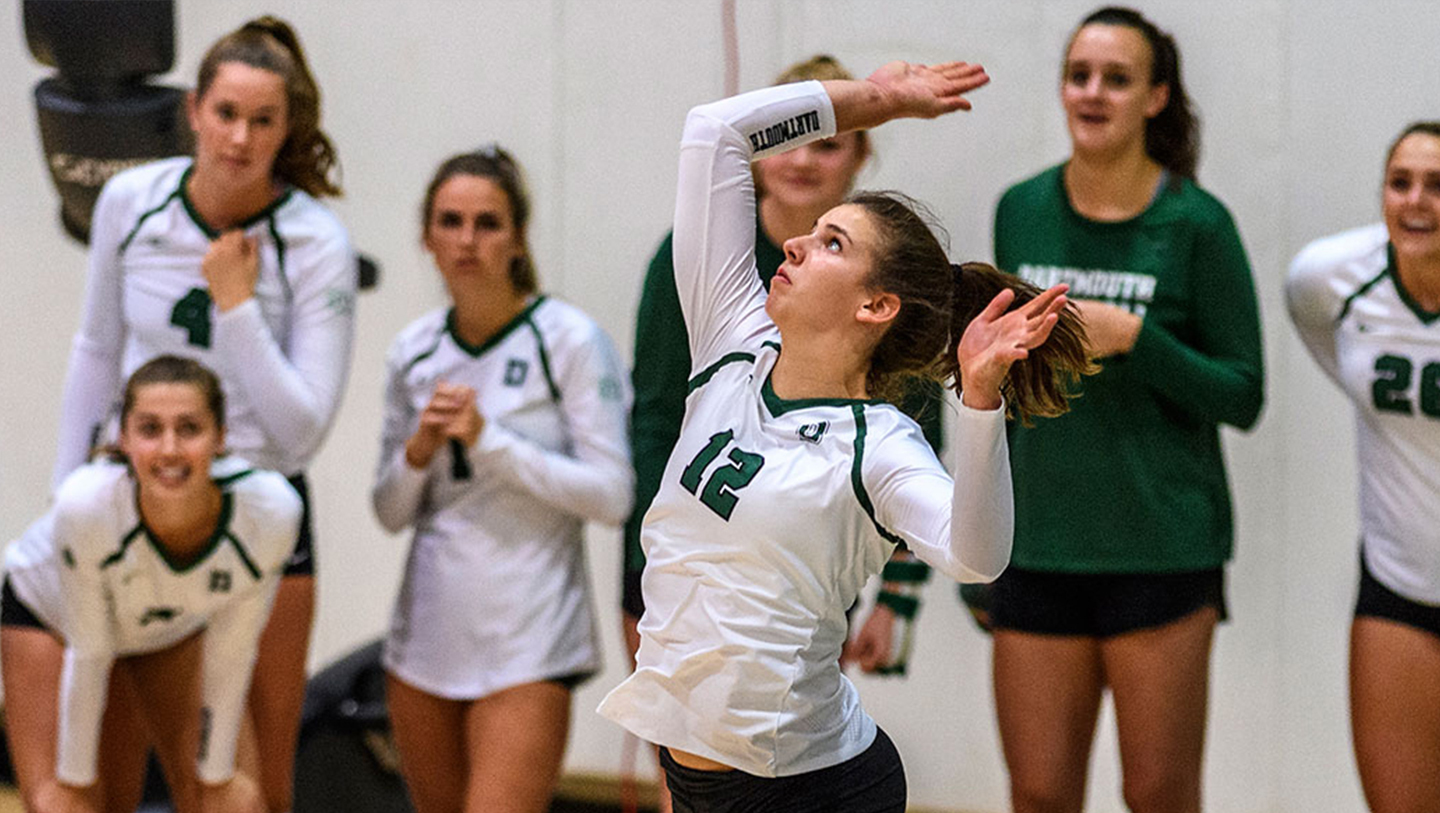Lessons from Sports and Life Inspire Athletic Endowment
Glenda and Fritz Corrigan ’64 endow a leadership and mental performance position to strengthen the student-athlete experience

Fritz Corrigan ’64 recalls arriving at Dartmouth in the middle of a hurricane. “I’d ridden out with a med school student and his brother, and there was a hurricane hitting Connecticut. It rained for four days in Hanover and we were hunkered down in the med school fraternity house, waiting for the rest of the class to arrive. It was so wet. That was my first in-person experience at Dartmouth,” he laughs.
“Of course, I had heard about Dartmouth for years and knew I could get a good education and hope to play hockey and ski—my two favorite sports.” Today Corrigan downplays his undergraduate hockey moves but consider this: he scored his first varsity goal in a Dartmouth jersey the moment he touched the puck. “We came in on a face-off and the center said, ‘I'm going to get this and pass the puck to you. You line up and just shoot it.’ He did, and I did, and it went in.”
It’s no surprise, then, to find that teamwork (and love of Big Green athletics) are recurring themes for Glenda and Fritz Corrigan, whose family includes daughters Amy Corrigan Lincoln ’93 (who played women’s golf at Dartmouth), Molly Corrigan Cronin ’95, and son Tom Corrigan, who graduated from St. Thomas University.
Glenda and Fritz recently endowed the Corrigan Family Assistant Athletics Director for Leadership and Mental Performance position in the Dartmouth Peak Performance (DP2) program with funds provided in a 50th Reunion gift. DP2’s mission is to optimize performance by supporting the whole student athlete.
Nowhere is teamwork more on display than on the playing field. Sports teams don’t exist without it, and leadership lessons learned on the field translate well in non-sports lives, too, Corrigan says. “Our athletic department believes they're teaching as much as coaching.
They're teaching sports skills, of course, but also the life skills and values that make for success later in a professional setting. Teamwork and leadership are a big part of that. DP2’s Peak Performance teaches the values of courage, integrity, and commitment. Good coaches recognize it when you do something difficult, when you stand up for what you believe in. I learned through hockey, and then through my business career, how important those skills are—and how having the basic values of integrity and courage can impact a person's future.”
Competition and courage
Virtually everything we do in life involves competition, Corrigan says. “Whether you are competing to attend Dartmouth, getting recruited to play a Division One sport, or landing a job, someone picks you instead of somebody else. They see something that they liked in you that was absent from the other person.
Body and mind
Competition in athletics can be exhilarating, but it also takes a mental toll for some. Including a mental performance component in the DP2 endowed position amplifies the growing awareness of the pressures that student-athletes face and the need to support their mental and emotional health as well as their physical development. “Dartmouth’s focus on whole-student wellness is not just timely, it is visionary,” says Stephen P. Gonzalez, Corrigan Family Assistant Athletic Director for Leadership and Mental Performance. “This position is one of just a handful in the NCAA that is solely focused on leadership development and mental performance enhancement.”
DP2 has grown into a truly collaborative “team behind our teams,” Gonzalez says, “enabling highly trained professionals to support our student-athletes on all aspects of academics, career endeavors, nutrition, strength and conditioning, sports medicine, psychological wellness, mental performance, and leadership development. The Corrigan Family Assistant Athletics Director for Leadership and Mental Performance is key in realizing that impact for our student-athletes.”
Dartmouth women’s volleyball team member Grace Wiczek ’23 attests to the importance of what Dartmouth Peak Performance offers. “The DP2 program has provided me with the resources and support to be my best on and off the court. One of my favorite Peak Performance programs is leadership development, run by Stephen Gonzalez. As a teammate, student, captain, and often-injured player, these programs have provided me with the resources I need, whether I am working through an injury, struggling with next steps as a leader, or having a hard time with a class,” she says.
Taurus Samuels ’22, guard on the men’s basketball team, agrees. “I try to take advantage of all DP2 has to offer. I have met with our nutritionist many times, as well as with our assistant athletic director to help me plan out my class scheduling and D-Plan. Stephen Gonzalez has helped me a lot in staying grounded so that when I am competing, I am only thinking about what is happening in the moment.”
In a class by itself
Several years ago, Fritz Corrigan and a group of his classmates rallied the Class of 1964 to make a memorable 50th Reunion class gift. Working with a cohort of fellow alumni to activate the effort, the class personally delivered a check for $10.1 million to President Phil Hanlon ’77 in support of two leadership initiatives rooted in non-classroom learning experiences and in athletics. The ’64s also provided an additional $4.6 million for the Dartmouth College Fund, for a combined Reunion gift of $14.7 million.
“Our class motto is ‘Dartmouth ’64: In a class by itself’ so we had to live up to the bragging we'd done over the years. It was a real class effort. One person couldn't have done it; just as rarely can one person lead a big effort like that. It takes teamwork and many people to be involved,” Corrigan says.